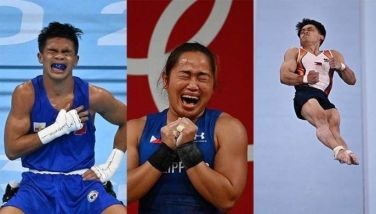WB stresses need to raise Phl excise tax rates

MANILA, Philippines - The World Bank stressed the need to raise the country’s excise tax rates, saying that the current rates are far lower than the rates in neighboring countries.
Finance Undersecretary Jeremias Paul Jr., citing the latest quarterly report of the World Bank, said yesterday that excise tax rates in the Philippines are among the lowest in the region.
According to the World Bank report, excise taxes in the Philippines as a percentage of retail sales price (RSP) of tobacco is 32.9 percent for the cheapest brands and 37.5 percent for both the most sold and premium brands.
In other countries, the percentage is higher, it said. In Pakistan, the percentage is 49.1 percent for the cheapest brands and 41.6 percent and 55.5 percent, respectively for the most sold and premium brands.
Furthermore, the World Bank study noted that in Thailand, the percentage is 51.1 percent for the cheapest brands and for the most sold and premium brands, 58.4 percent and 61.6 percent, respectively.
Paul submitted the findings of the World Bank to the House of Representatives ways and means committee which is currently hearing various versions of sin tax measures filed by lawmakers.
The Department of Finance-backed House Bill 5727, authored by Cavite Rep. Joseph Emilio Abaya, is among the measures pending in Congress. The measure calls for the adoption of a unitary tax system for tobacco and liquor and indexation of taxes to inflation.
Tobacco and liquor companies are opposing the bill, saying that raising taxes on so-called sin products would displace tobacco farmers and liquor company employees.
The DOF, however, is pushing for higher sin taxes, saying that the measure could yield much-needed additional revenues of roughly P60 billion a year.
In its study, the World Bank said the current sin tax structure has resulted in a decline in tax revenues from alcohol and cigarettes.
“The real revenue yield from excises on tobacco and alcohol has declined significantly since 1997. As a result, from 1997 to 2009, excise collection as a share of gross domestic product (GDP) fell by about 0.6 percent from an already low yield of 1.2 percent of GDP.
Quite alarming, Philippine tobacco excise tax rates and burden are among the lowest in South East Asia,” the World Bank said.
Furthermore, the World Bank said the shift to a uniform excise tax rate for all brands would remove production distortions and discourage cigarette and alcohol consumption.
“The current multi-tier price classification system has no clear policy rationale and is unique internationally. It therefore should be abolished,” the World Bank said.
However, workers in the cigarette and alcohol industry said raising sin taxes would adversely affect them.
Rodel Atienza, president of the labor union of PMFTC, the merged entity of cigarette maker Philip Morris and Fortune Tobacco, claimed that the steep adjustment would result in “massive layoffs and foreclosure of cigarette and alcohol factories.”
- Latest
- Trending





























